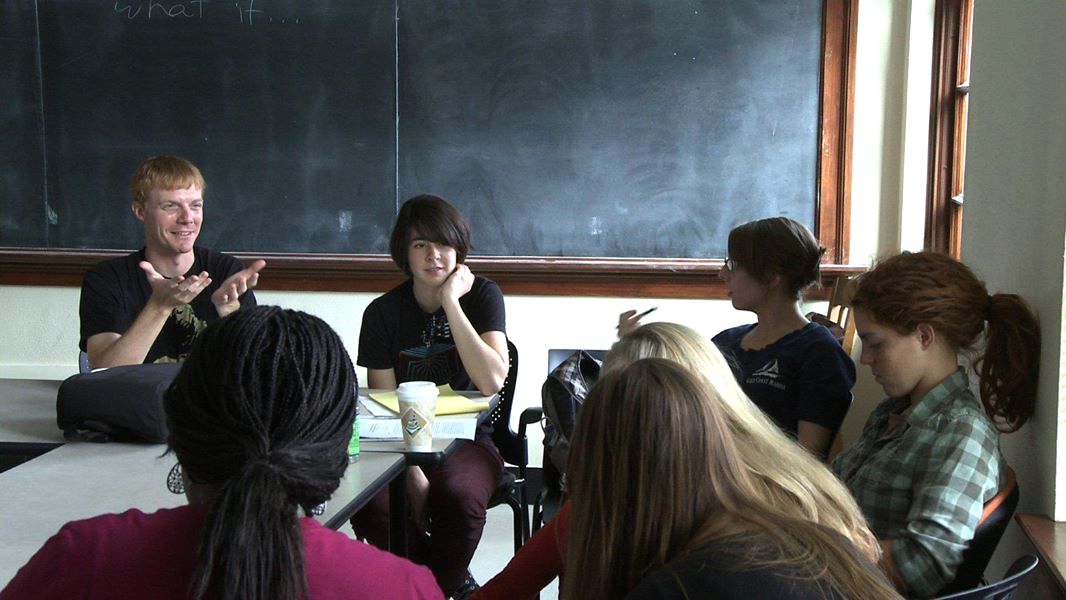 The passing of Steve Jobs has sent millions of people into reflection and reverie, and begs questions of the possibilities of repeating his vision and success. “Will there ever be another Steve Jobs?” asks one publication. While another contrarily claims that he “was not god,” still others iconize him, call him a tech-messiah, and lament his passing with something just short of worship. As agnostic as I’ve been computer-wise, I’ve always been a fan of the man, but does the death of Steve Jobs mark the end of a human era, the end of the singular genius, the lone visionary, the thought leader? In some ways, I am compelled to answer affirmatively, but to give Jobs all the credit is to do him and others like him a disservice. As Bonnie Stewart put it, “I fully agree that Steve Jobs left us a legacy. But it is not to be him.” We are the reason he was the last of his kind.
The passing of Steve Jobs has sent millions of people into reflection and reverie, and begs questions of the possibilities of repeating his vision and success. “Will there ever be another Steve Jobs?” asks one publication. While another contrarily claims that he “was not god,” still others iconize him, call him a tech-messiah, and lament his passing with something just short of worship. As agnostic as I’ve been computer-wise, I’ve always been a fan of the man, but does the death of Steve Jobs mark the end of a human era, the end of the singular genius, the lone visionary, the thought leader? In some ways, I am compelled to answer affirmatively, but to give Jobs all the credit is to do him and others like him a disservice. As Bonnie Stewart put it, “I fully agree that Steve Jobs left us a legacy. But it is not to be him.” We are the reason he was the last of his kind.
The connectivity of the web has all but killed the archetype of the singular visionary leader. Online, we connect to share with each other, not to listen to a single voice. It’s not necessarily the death of the grand narrative and the birth of postmodernism, it’s more the onset of postMODEMism. Ever since we started modulating and demodulating our ideas, information, and identities, our heroes have been in harm’s way. The web is more about processes and projects than products. The web is inherently a collaborative space. Authorship does not equal ownership. We’re in this together.
In spite of recent reports, the creative class is very real, and, as Scott Smith pointed out, is the larger part of the masses currently occupying Wall Street. The creative class is still here, but like the creative genius, no one owes us a living. We have to make our own way, and we will.
Unlike others, I don’t think the Big Idea is dead either. I think our collaborative, networked thinking makes it more difficult to see the collaborative origins of the singular innovation. If ideas are networks, then big ideas are big networks. Even Jobs brought to market what were previously existing, networked ideas: “He saw what technologies were on the verge of being possible — and what technologies consumers were ready to accept,” Josh Bernoff wrote when Jobs stepped down as Apple CEO in August. “There could have been no iPhone without the habits created by iPods and Blackberry, no Mac without Apple and IBM PCs embraced by those who came before… Apple doesn’t make flash memory, microprocessors, touchscreens, or, for the most part, websites. It just puts them all together.” Toward the end of this 1996 interview with Steve Jobs on Wall Street Week with Louis Rukeyser [runtime: 4:32], Jobs talks about the sheer openness of the internet and how no one single company can ever contain it [the internet bit starts around 3:15]. “We’re going to see innovation contain it,” he says.
No weak men in the books at home
The strong men who have made the world
History lives on the books at home
The books at homeIt’s not made by great men
The past lives on in your front room
The poor still weak the rich still rule
History lives in the books at home
The books at homeIt’s not made by great men
— Gang of Four, “Not Great Men”
It’s downright eerie watching these ideas collide in realtime on the choppy live-feed of Slavoj Žižek addressing the protestors of Occupy Wall Street today, as they respond in unison: “You don’t need a genius to be your leader.” This call-and-response is called “The Human Microphone” and is used due to restrictions on amplified sound in the public space of New York City. In an ironic mix of collaborative leadership, collective allegiance, communication technology, and lacks thereof, The Human Microphone is the perfect metaphor for the death of the hero. There is no “one for all” anymore. History’s not made by great men. As Bonnie Stewart concludes, “So maybe in this new world order, we should stop touting those who are ‘crazy enough to be geniuses’, — which is a romantic notion, even if it is sometimes true, like with Jobs — and reward those who are best able to share and innovate in teams.”
The good news for all is that collaboration makes each of us bigger. Find the folks that empower you to do more, to be more, and avoid the ones who don’t. As the Hopi once put it, “We are the ones we’ve been waiting for.”
————
Here’s a clip of an odd yet amazing cover of Gang of Four’s “Not Great Men” by an appropriately all-female Japanese percussion group [runtime: 4:09]:
————
Many thanks to my friend Dave Allen for sharing links and the Japanese Gang of Four cover clip, to Mike Schandorf for sharing the Žižek live-feed, and to my friend and collaborating champion Heather Gold for sharing the Steve Jobs clip. Onward together.


